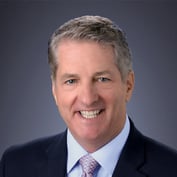When it comes to professions that Americans love to hate, sitting at the bottom of the barrel in most such surveys are used-car salesmen, journalists, and lawyers. Leaving aside the necessary evil of having to deal with used-car salesmen (not all of whom are evil), and admitting my bias in favor of the essential role that responsible journalists have played and always will play in a civilized society, I’d argue that attorneys don’t deserve their bad reputation. Yes, some are unethical, as is true of any profession, but our legal system stays healthy because attorneys act as advocates for their clients. Attorneys also think very logically and are expert at teasing out the ramifications of laws and actions, of where they apply and where they break down.
Thus, I’m happy that regular IA contributor Tom Giachetti, an attorney who specializes in our industry (both the RIA and the B/D sides), addresses that hot issue–what constitutes a fiduciary responsibility, who is a fiduciary–in this magazine, beginning on page 129. The definition sits at the center of several current controversies in the advisory world–the CFP Board’s proposed revamping of its ethics code, the Merrill Lynch rule and the FPA’s ongoing legal tussle with the SEC over that rule, and even in the retirement planning area, where provisions of the recent Pension Protection Act affect a range of responsibilities under ERISA among plan providers and sponsors and advice givers to plan participants.
Those three areas, not coincidentally, are the topics of discussion on the IA Exchange, our new discussion boards on the revamped Investment Advisor Web site (www.investmentadvisor.com/forums). Please feel free to join the lively discussions there.








 November 01, 2006 at 02:00 AM
November 01, 2006 at 02:00 AM










